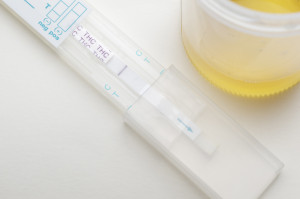UNAMIMOUS SUPREME COURT REINFORCES DEFENDANT’S RIGHT TO CHALLENGE BREATH TEST RESULTS IN OHIO DUI/OVI CASES
For three decades, lawyers and judges have been misinterpreting the case of State v. Vega. In Vega, the Ohio Supreme Court held defendants in DUI/OVI cases may not attack the general reliability of breath-testing machines. Some lawyers and judges interpret Vega as if it says defendants are not permitted to make anychallenge to the breath test result. This misinterpretation of the Vega decision may exist in part because most people have not actually read the decision. It’s like the telephone game where the statement made by the first person in the game is modified drastically by the time the statement is repeated by the last person in the game. A few days ago, the Ohio Supreme Court clarified the holding of Vega in a case which will hopefully end the abuse of defendants’ rights resulting from the misinterpretation of Vega.
The recent case is Cincinnati v. Ilg. In Ilg, the defendant took a breath test on an Intoxilyzer 8000, blew over .080, and was charged with OVI. The defense attorney filed a Demand For Discovery requesting that the prosecution provide records for the specific Intoxilyzer 8000 used for his client’s breath test. When the prosecution did not provide the records, the defense subpoenaed the records from the Ohio Department of Health, the agency responsible for maintaining those records. The program administrator for the Department of Health’s alcohol and drug testing program told the Court the Department of Health did not have the personnel or technology to provide the requested records. The records were not provided.
The trial court excluded the breath test results from evidence, concluding the defendant had the right to challenge the reliability of his breath test and could not do so without the requested records. The prosecution appealed to the First District Court of Appeals, and the appellate court affirmed the decision of the trial court. The prosecution then appealed to the Ohio Supreme Court. The prosecution’s primary argument was this: a defendant cannot compel the State to produce information that is to be used for the purpose of attacking the reliability of the breath-testing instrument because State v. Vega prohibits defendants from making attacks on the reliability of breath-testing instruments.
The Ohio Supreme Court framed the issue this way: “whether an accused defending a charge that he operated a motor vehicle with a prohibited level of alcohol in his breath is precluded from attacking the reliability of the specific breath-testing machine”. The Court concluded that, although a defendant may not challenge thegeneral reliability of approved breath-testing instruments, a defendant may challenge the accuracy of his specific test results. The Court stated a defendant may challenge, “the accuracy, competence, admissibility, relevance, authenticity, or credibility of specific test results at issue in a pending case.”
In reaching this conclusion, the court cited several previous Ohio Supreme Court decisions reaching the same conclusion. That’s because the Ilg decision is paradoxically a landmark case which doesn’t really say anything new. The interpretation of Vega ‘announced’ by Ilg is actually what Vega itself said 30 years ago. The need for the ‘new interpretation’ of Vega only existed because of the telephone game problem. Some lawyers and judges told some other lawyers and judges about the ‘Vega rule’, those lawyers and judges told some other lawyers and judges, and so on, and so on. Eventually, it was ‘common knowledge’ in the legal community that defendants cannot challenge breath test results, even though that’s not at all what Vega said.
As Judge Teresa Liston said in State v. Lancster, “Because this Court is bound to apply the rule of Vega as articulated by the Vega court itself, and not the ostensible or purported rule of Vega, a close reading of Vega is appropriate, and indeed required.” Indeed! Now that a unanimous Ohio Supreme Court has reinforced the true holding of Vega, motorists in Ohio will finally be able to defend themselves against OVI charges based on inaccurate breath test results.


